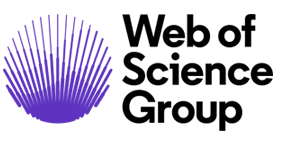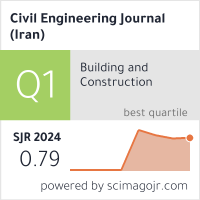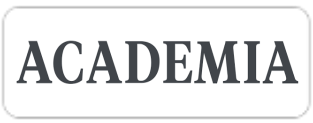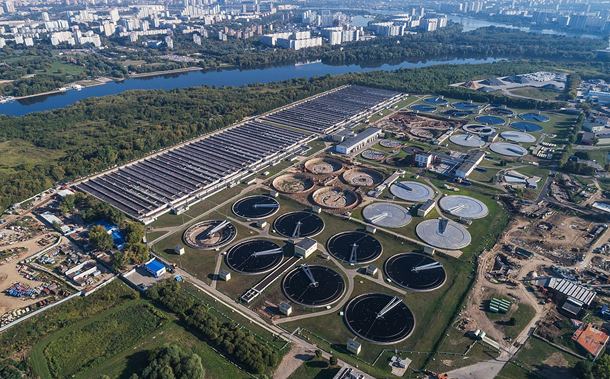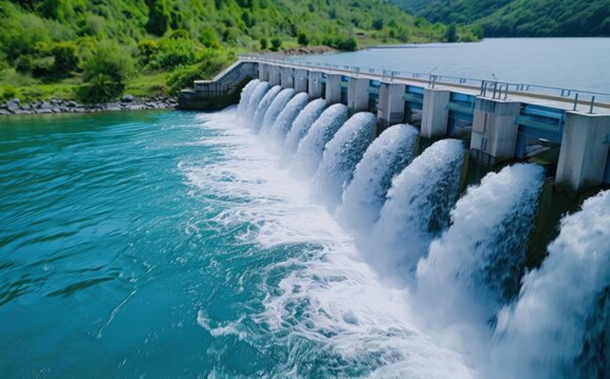Tracking Process and Benefit-Ability of Reflection Spectrum of TQM in Construction Industry
Downloads
Total Quality Management is an important journey in developing the construction industries. Construction firms are working to achieve the aspirations of clients in terms of quality systems, and through adopting a total quality management tracking system, it contributes significantly to achieving the objectives of projects and aspirations of clients too. The primary objective of this research paper is to develop a tracking process for total quality management by identifying restrictions and a model of required actions to overcome these restrictions to ensure the successful implementation of TQM as a basic system in the construction industry. Therefore, the research is divided into two phases. The first phase included identifying and analyzing restrictions by using a questionnaire to survey 102 expert engineers in the construction industry and quality laboratories. The second phase involved developing the main hypothesis and analyzing required actions through analysis using the assumption of Kruskal-Wallis. The opinions of three groups of experts were also relied upon to complete this tracking phase. To evolve a tracking system that includes the actions that are coded in this research paper under (A-TQM). The proposed patch model carries the symbol (MPP) for tracking TQM and has been presented. The MPP consists of three figures that indicate the wheel of TQM, tracking of the required scope of TQM, and packages of scope to meet with TQM pillars.
Downloads
[1] Pheng, L. S., & Teo, J. A. (2004). Implementing Total Quality Management in Construction Firms. Journal of Management in Engineering, 20(1), 8–15. doi:10.1061/(asce)0742-597x(2004)20:1(8).
[2] Afzal, N., Hanif, A., & Rafique, M. (2022). Exploring the impact of total quality management initiatives on construction industry projects in Pakistan. PLOS ONE, 17(9), e0274827. doi:10.1371/journal.pone.0274827.
[3] Abazid, M., Gökçekuş, H., & Çelik, T. (2021). Implementation of TQM and the Integration of BIM in the Construction Management Sector in Saudi Arabia. Advances in Materials Science and Engineering, 1232620. doi:10.1155/2021/1232620.
[4] Shoshan, A. A. A., & Çelik, G. (2018). Application of TQM in the Construction Industry of Developing Countries - Case of Turkey. Anadolu University Journal Of Science And Technology A - Applied Sciences and Engineering, 19(1), 177–191. doi:10.18038/aubtda.345779.
[5] Chang, H. H., Wang, Y. H., & Yang, W. Y. (2009). The impact of e-service quality, customer satisfaction and loyalty on e-marketing: Moderating effect of perceived value. Total Quality Management and Business Excellence, 20(4), 423–443. doi:10.1080/14783360902781923.
[6] Haupt, T. C., & Whiteman, D. E. (2004). Inhibiting factors of implementing total quality management on construction sites. The TQM Magazine, 16(3), 166–173. doi:10.1108/09544780410532891.
[7] Bon, A. T., & Mustafa, E. M. A. (2013). Impact of Total Quality Management on Innovation in Service Organizations: Literature Review and New Conceptual Framework. Procedia Engineering, 53, 516–529. doi:10.1016/j.proeng.2013.02.067.
[8] Sadikoglu, E., & Olcay, H. (2014). The Effects of Total Quality Management Practices on Performance and the Reasons of and the Barriers to TQM Practices in Turkey. Advances in Decision Sciences, 2014, 1–17. doi:10.1155/2014/537605.
[9] Mohamed, M. S., Ibrahim, D. E., & Mohamed, K. L. (2013). An Evaluation of the Application of Total Quality Management in Construction Projects in Egypt. International Journal of Multidisciplinary Academic Research, 1, 376-85.
[10] Alawag, A. M., Alaloul, W. S., Liew, M. S., Musarat, M. A., Baarimah, A. O., Saad, S., & Ammad, S. (2023). Critical success factors influencing total quality management in industrialised building system: A case of malaysian construction industry. Ain Shams Engineering Journal, 14(2), 101877. doi:10.1016/j.asej.2022.101877.
[11] Jumah M.Th. Al-Dulaimy. (2015). Evaluation of Total Quality Management Implementation as Engineering Practices in Jordanian Construction Projectsn. IOSR Journal of Mechanical and Civil Engineering (IOSR-JMCE), 12(1), 57–65. doi:10.9790/1684-12125765.
[12] Shammas-Toma, M., Seymour, D., & Clark, L. (1998). Obstacles to implementing total quality management in the UK construction industry. Construction Management & Economics, 16(2), 177-192. doi:10.1080/014461998372475.
[13] Abd, A. M., Zehawi, R. N., & Ali, R. H. (2024). Particle Swarm Optimization and Tree Models (M5P) as Cost Estimation Tool for Construction Project. Mathematical Modelling of Engineering Problems, 11(9), 2303–2311. doi:10.18280/mmep.110903.
[14] Hočevar, L. 2006. Comprehensive quality management in the construction process. Diploma Thesis –, Faculty of Civil and Geodetic Engineering, Department of Civil Engineering, Organizational and Technological Direction, University of Ljubljana, Ljubljana, Slovenia.
[15] Chassib, D. S. M., Resan, D. S. A. F., Gejan, M. S., Salih, M. J., & Hasan, A. M. (2018). Developing Sustainable Lightweight Bubbled Ferrocement Slab Using Enhancing Cementitious Agents. International Journal of Civil Engineering and Technology, 9(11), 749-765.
[16] Hazem, R. T., & Breesam, H. K. (2019). Development of Possible Solution to Overcome Factors Influence on Sustainable Construction Process. Civil Engineering Journal (Iran), 5(7), 1506–1517. doi:10.28991/cej-2019-03091348.
[17] Neyestani, B., & Juanzon, J. (2016). Identification of a Set of Appropriate Critical Success Factors (CSFS) for Successful TQM Implementation in Construction, and Other Industries. International Journal of Advanced Research, 4(11), 1581–1591. doi:10.21474/ijar01/2248.
[18] Metri, B. A. (2005). TQM critical success factors for construction firms. Management: journal of contemporary management issues, 10(2), 61-72.
[19] Budayan, C., & Okudan, O. (2022). Roadmap for the implementation of total quality management (TQM) in ISO 9001-certified construction companies: Evidence from Turkey. Ain Shams Engineering Journal, 13(6). doi:10.1016/j.asej.2022.101788.
[20] Hietschold, N., Reinhardt, R., & Gurtner, S. (2014). Measuring critical success factors of TQM implementation successfully-a systematic literature review. International Journal of Production Research, 52(21), 6254-6272. doi:10.1080/00207543.2014.918288.
[21] Majumdar, S. M. (2024). Quality Management System Implementation at Construction Projects. International Journal of Scientific Research in Engineering and Management, 08(12), 1–7. doi:10.55041/ijsrem39978.
[22] Hazem, R. T., Hadi, A. H., & Nassar, Y. S. (2024). The Degree of Consistency Through Adopting SMART Objectives for Succession of Feasibility Studies to Infrastructure Projects. HighTech and Innovation Journal, 5(3), 614–626. doi:10.28991/HIJ-2024-05-03-05.
[23] Shibani, A., Ganjian, E., & Soetanto, R. (2010). Implementation of total quality management in the Libyan construction industry. International Journal of Project Organisation and Management, 2(4), 382–403. doi:10.1504/IJPOM.2010.035874.
[24] Mehta, N., Verma, P., & Seth, N. (2014). Total quality management implementation in engineering education in India: an interpretive structural modelling approach. Total Quality Management & Business Excellence, 25(1-2), 124-140. doi:10.1080/14783363.2013.791113.
[25] Ezeani, N. S., & Ibijola, E. Y. (2017). Prospects and problems of total quality management on the productivity and profitability of manufacturing organizations. European Journal of Research and Reflection in Management Sciences, 5(1), 21-29.
[26] Assensoh-Kodua, A., & Imrith, A. (2016). Effects of Total Quality Management Implementation in a Manufacturing Industry. Risk Governance & Control: Financial Markets & Institutions, 6(4), 257-267.
[27] Riaz, H., Iqbal Ahmad Khan, K., Ullah, F., Bilal Tahir, M., Alqurashi, M., & Alsulami, B. T. (2023). Key factors for implementation of total quality management in construction Sector: A system dynamics approach. Ain Shams Engineering Journal, 14(3). doi:10.1016/j.asej.2022.101903.
[28] Qurashi, M. N., Xiao, C.-L., Alrasheed, K. A., & Benjeddou, O. (2024). Optimizing Injection Moulding Processes for Structural Components in Construction Management. Civil Engineering Journal, 10(10), 3437–3454. doi:10.28991/CEJ-2024-010-10-020.
[29] Singh, V., Kumar, A., & Singh, T. (2018). Impact of TQM on organisational performance: The case of Indian manufacturing and service industry. Operations Research Perspectives, 5, 199–217. doi:10.1016/j.orp.2018.07.004.
[30] Wanderi, E. N., Mberia, H., & Oduor, J. (2015). Evaluation of factors influencing total quality management implementation in rwadan construction companies: case of fair construction company. European journal of business and social sciences, 4(3), 14-28.
[31] Khaleel, T., & Nassar, Y. (2018). Identification and analysis of factors affecting labour productivity in Iraq. MATEC Web of Conferences, 162, 2032. doi:10.1051/matecconf/201816202032.
[32] Alawag, A. M., Alqahtani, F. K., Alaloul, W. S., Liew, M. S., Baarimah, A. O., Al-Mekhlafi, A.-B. A., & Sherif, M. A. (2024). Developing Framework for Implementing Total Quality Management (TQM) in Sustainable Industrialized Building System (IBS) in Construction Projects. Sustainability, 16(23), 10399. doi:10.3390/su162310399.
[33] Karunia, R. L., Yanto, E., Prasetyo, J. H., Muthmainah, E., Hiswendari, L., Setiawan, P., & Saragih, M. A. P. (2024). Digital Collaboration Models for Empowering SMEs: Enhancing Public Organization Performance. Emerging Science Journal, 8(4), 1492–1505. doi:10.28991/ESJ-2024-08-04-015.
[34] Cronbach, L. J. (1951). Coefficient alpha and the internal structure of tests. Psychometrika, 16(3), 297-334.
[35] Hazem, R. T., Hadi, A. H., & Nassar, Y. S. (2024). The Degree of Consistency Through Adopting SMART Objectives for Succession of Feasibility Studies to Infrastructure Projects. HighTech and Innovation Journal, 5(3), 614–626. doi:10.28991/HIJ-2024-05-03-05.
[36] Al-Ani, R. Z., & ALMashhadani, H. M. (2024). Total Quality Management. Journal of Engineering, 10(3), 345–358. doi:10.31026/j.eng.2004.03.05.
[37] Azman, N. S., Ramli, M. Z., & Zawawi, M. H. (2018). Factors affecting quality management of construction project using industrialized building system: A review. International Journal of Engineering and Technology (UAE), 7(4), 307–311. doi:10.14419/ijet.v7i4.35.22751.
[38] Hazem, R. T., & Breesam, H. K. (2006). Analysis The Stumbling Blocks Associated With Sustainable Procurement In Industrial Contracting Using 5-Whys Technique. ARPN Journal of Engineering and Applied Sciences, 14(13), 2386-2396.
[39] Riaz, H., Khan, K. I. A., Ullah, F., Tahir, M. B., Alqurashi, M., & Alsulami, B. T. (2023). Key factors for implementation of total quality management in construction Sector: A system dynamics approach. Ain Shams Engineering Journal, 14(3), 101903. doi:10.1016/j.asej.2022.101903.
[40] Boadu, E. F., Wang, C. C., & Sunindijo, R. Y. (2020). Characteristics of the construction industry in developing countries and its implications for health and safety: An exploratory study in Ghana. International Journal of Environmental Research and Public Health, 17(11), 1–21. doi:10.3390/ijerph17114110.
[41] Chassib, S. M., Haider, H. H., Mussa, F. I., Resan, S. F., Hazem, R. T., Ala A, M., Hamad, F. S., & Hussein, N. M. (2025). Behavior of Ferrocement Reinforced Concrete Beams Incorporating Waste Glass Exposed to Fire. Eng, 6(3), 54. doi:10.3390/eng6030054.
[42] Alalyani, W. R., & Lee, C. K. (2024). Investigating factors affecting project performance moderated by project governance. Problems and Perspectives in Management, 22(1), 268–278. doi:10.21511/ppm.22(1).2024.23.
[43] Erande, S. S., & Pimplikar, S. S. (2016). Total quality management in Indian construction industry. International Research Journal of Engineering and Technology, 3(6), 685-691.
[44] Deepika, S., Anandakumar, D. S., & Krishnamoorthy, D. V. (2016). Study on Factors Influencing the TQM Practices and its Consequences. Bonfring International Journal of Industrial Engineering and Management Science, 6(2), 48–52. doi:10.9756/bijiems.7088.
[45] Ali, R. H., Alazawy, S. F. M., Mustafa, A., & Erzaij, K. R. (2024). Smart City Feasibility Study using IoT and Machine Learning. Engineering, Technology & Applied Science Research, 14(5), 17494–17500. doi:10.48084/etasr.8714.
[46] Fahad, M., Mohamad, H. M., Sulaiman, M. F., & Suro, S. M. (2024). The Ramifications of Poor Communication in Construction Projects: Unraveling Complex Litigation and Arbitration. Journal of Human, Earth, and Future, 5(4), 704–719. doi:10.28991/HEF-2024-05-04-012.
[47] Leonor, M. M. A., Easud, G. S. M., & Fernando, P. Q. - L. (2022). Indeterminate Likert Scale in Social Sciences Research. International Journal of Neutrosophic Science, 19(1), 289-297. doi:10.54216/ijns.190125. (In Spanish).
[48] Qin, Y., Mohd Hashim, S. R., & Sulaiman, J. (2023). Evaluation of teaching quality in mathematical courses using relative important index: A case study in Neijiang Normal University. Science, Engineering and Health Studies, 17. doi:10.69598/sehs.17.23020011.
[49] Richardson, J. T. E. (2018). Kruskal-Wallis Test. The SAGE encyclopedia of educational research, measurement, and evaluation, 937–939. doi:10.4135/9781506326139.n377.
[50] Chan, Y., & Walmsley, R. P. (1997). Learning and understanding the Kruskal-Wallis one-way analysis-of- variance-by-ranks test for differences among three or more independent groups. Physical Therapy, 77(12), 1755–1762. doi:10.1093/ptj/77.12.1755.
[51] Mailyan, L. D., & Sizen, N. O. (2024). Assessment of quality indicators in construction. The Russian Automobile and Highway Industry Journal, 21(3), 464–474. doi:10.26518/2071-7296-2024-21-3-464-474.
- Authors retain all copyrights. It is noticeable that authors will not be forced to sign any copyright transfer agreements.
- This work (including HTML and PDF Files) is licensed under a Creative Commons Attribution 4.0 International License.![]()


